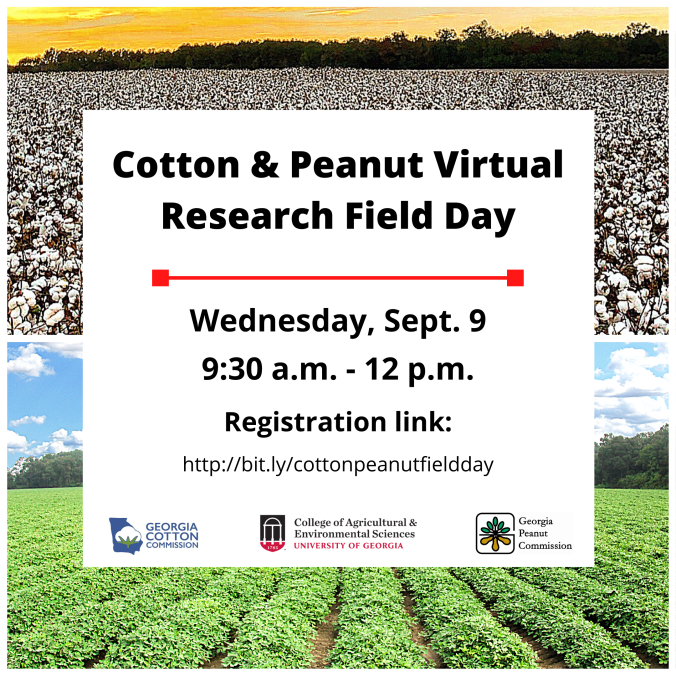
PERRY/TIFTON, Ga. – The Georgia Cotton Commission, Georgia Peanut Commission and the University of Georgia Extension Cotton and Peanut Teams, will co-sponsor a virtual research field day on Wednesday, Sept. 9, 2020.
The virtual field day will begin at 9:30 a.m. and conclude at noon. Re-certification credits for pesticide applicators and CCA will be available pending approval. The field day is a free event, but attendees are encouraged to preregister at http://bit.ly/cottonpeanutfieldday.
The purpose of the tour is to showcase current research to producers and industry leaders, which is funded by both commissions. The sponsors’ goal is to provide an educational opportunity for cotton and peanut farmers and offer them the chance to present questions directly to the researchers and express opinions and concerns pertinent to the production of their crops.
Chairmen of the peanut and cotton commissions, Armond Morris and Bart Davis, respectively, agree this event provides farmers with the opportunity to learn about the latest research advancements at the University of Georgia regarding cotton and peanut research programs. Since an in-person field day was not possible this year, the virtual platform will provide a way for farmers to learn about the research projects funded by their checkoff investments and ask questions.
Videos from the Cotton and Peanut Research Virtual Field Day will be available on the Georgia Cotton Commission and Georgia Peanut Commissions websites at http://www.georgiacottoncommission.org or http://www.gapeanuts.com.